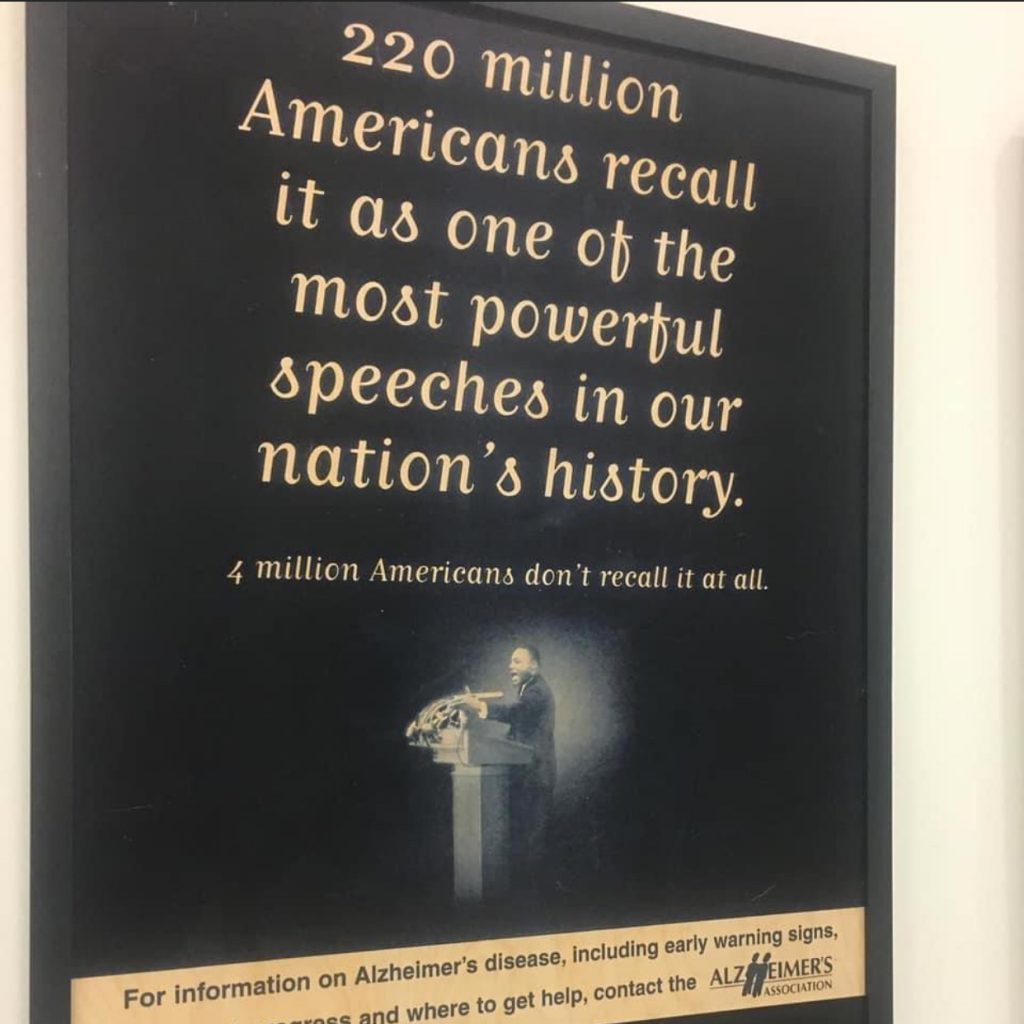People with Alzheimers and Dementia-Related Disorders Need Mental Healthcare as Well; Behind the Scenes Interning at a Non-Profit
Share

The most expensive disease in the United States is not what you think it may be: cancer. It is Alzheimer’s Disease, a progressive neurodegenerative disease that tends to affect people who are older in age. Most people know someone who has had Alzheimer’s, whether it be a family member or a friend of a family member. Some people are caregivers to someone with Alzheimers, and some people with ADRD live in a nursing home. People often don’t know what resources are available to people with Alzheimers when they are having a mental health crisis. This summer, I interned for the Alzheimer’s Association of Houston and Southeast chapter to research the public policy in this area to figure out how to improve it. Public policy is a wide variety of different laws and regulations that affect society. In my work, I focused on researching the intersection of mental health and Alzheimer’s in public policy. My goal was to help the Association create a protocol for when people with Alzheimer’s are having a mental health crisis.
My boss recognized a gap in Alzheimer’s resources allocated to Alzheimers within nursing homes, assisted living places, and government policy. There were not a lot of existing resources for people with Alzheimer/Dementia Related Disorders (ADRD) who had experienced a mental health crisis. The idea that mental health professionals should have trained police (or sometimes a different unit within the police department) to receive mental health calls, is a relatively new one. Out of Texas’ major cities, the oldest police department’s crisis intervention team is only a little over two decades old. This is a problem when loved ones of people with ADRD call the police on them for having a mental health episode, whether it be threatening violence to their caregiver, having suicidal ideation, or having symptoms after refusing their psychiatric medication. Police departments’ crisis intervention teams don’t always know what to do. These people may be threatening violence to their caregivers, experiencing suicidal ideation, or refusing to take psychiatric drugs prescribed to help them. Most of the time these people are not actively suicidal or homicidal, so sending them to a psychiatric hospital, or putting them in jail would be inappropriate. Police taking them to a psychiatric hospital would be inappropriate, as the most of the time these people with ADRD having suicidal nor homicidal ideation, but being put in jail is not an appropriate solution either. This is a problem because sending patients back to the nursing home or to their home with their caregiver often doesn’t address the issue. So what do they do? That’s what I set out to research.

The first thing I researched was to try to find out what usually happens in these situations, and this wasn’t easy to find because there is very little data about when this crisis arises. So, my co-worker and I decided to create a roundtable. We invited first responders in the Houston area, such as police, directors of psychiatric units, and people who work in governmental agencies, such as Adult Protective Services. The roundtable is going to be held in October. Hopefully, this roundtable will help the Association have insight into what these first responders tend to observe in crisis situations. This will better help the Alzheimer’s Association understand and advocate for resources for people with ADRD in times of crisis. The next thing that I worked on was sifting through other state plans of different Alzheimer’s Association chapters. These yearly plans are goals that the Association makes in addressing its needs. To my surprise, Wisconsin had the best implementation of their plan. This astonished me because they don’t have a large elderly population. However, while their elderly population is slim, they do have the only police department unit in the country that specifically handles ADRD mental health crises. This makes this department unique. Reading through the police department’s initiatives that helped my coworker and I write advocacy for Texas.
The next Texas Legislative Session will be in January. The research I did on other states’ plans helped prepare for the goals that will be presented by my co-worker and boss at the budget hearings. Along with resources for ADRD-specific crisis management, the Association is also going to advocate for some things that are laid out in the Alzheimer’s Association national goals. These aims are to increase funding for clinical trials, provide assistance to unpaid caregivers, amongst other goals. My internship ended before school started, but I may go to the hearing in January, especially since I live close to Austin. COVID had a dramatic effect on nursing homes, specifically people with ADRD, and this made it an especially important time for increased resources and funding from the state to people with ADRD.
A lot of people that worked in this organization have a personal connection to someone with Alzheimers, including me. My Grandfather passed away in 2019 from Alzheimers, and it was tough. Which was for the obvious reasons of grief, but also because I watched him suffer from a disease that still has significant gaps in research. Despite the sadness of Alzheimer’s Disease, non-profit workers are some of the happiest workers I have ever seen. I was pleasantly surprised by this, because I have had internships before, but never for a non-profit organization. The happiness probably comes from knowing that they are working to make a difference in a great, well-supported cause. The people that worked there are also some of the hardest working people that I know, most of the volunteers are covering a whole area of work like “social media” or “volunteer outreach.” My boss, the public policy director, was a team of one. My co-worker and I were her first interns she had ever had. The dedication these people had to ending Alhzeimer’s was incredible. This is an organization that is mostly made up of women. It was refreshing to see women in positions of power. I am grateful that I had the opportunity to intern there this summer, and look forward to reading and hopefully attending the 2023 Texas Legislative Session.
